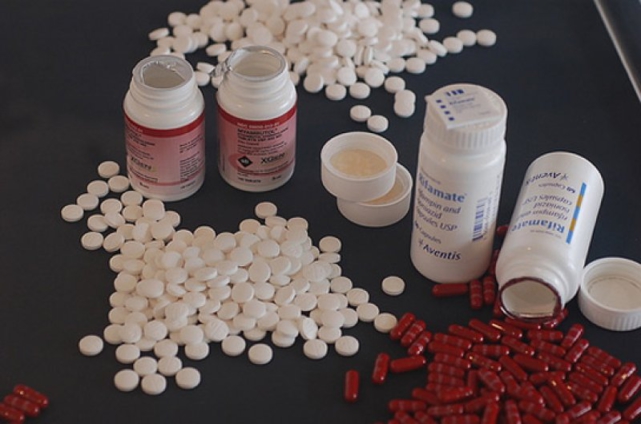A new patient-friendly Tuberculosis (TB) preventive therapy will soon be rolled out in Ghana and 4 other high-burden TB countries at an affordable price.
This is expected to reduce the number of pills needed for TB treatment from 9 to 3 in a week.
Ethiopia, Kenya, Mozambique, and Zimbabwe are the remaining countries to receive the fixed-dose combination treatment at a cost of US$ 15.
This new TB treatment regime is being rolled out by the International Drug Purchase Facility (Unitaid), the President’s Emergency Plan For AIDS Relief (PEPFAR) and the Global Fund to Fight AIDS, Tuberculosis and Malaria.
Enough treatment for up to 3 million patients is expected to be made available for eligible countries this year.
The provision of the new treatment will contribute towards the United Nations High-Level Meeting (HLM) target to provide TB treatment to at least 30 million people by 2022.
Director of World Health Organization’s (WHO) Global TB Programme, Dr Tereza Kasaeva, said the WHO welcomed the new fixed-dose combination TB preventive treatment that would reduce the pill burden for people with TB infections while enabling better adherence and outcomes.
He said with the new regime, the WHO looked forward to a surge in action from national programmes supported by donors and partners to scale-up access to TB preventive treatment and reach the UN High-Level Meeting targets.
Director of the Programme Division at Unitaid, Mr Robert Matiru, said the pills’ ceiling price agreement negotiated with Macleods was another example of its commitment to ensure that effective, quality-assured and affordable TB preventive therapies were made available in low and middle-income countries.
He said Unitaid we would ensure a healthy market for all manufacturers that wished to develop and commercialize rifapentine-based products.
People with TB infection, often dubbed latent, have no symptoms, are not contagious and most do not know they are infected.
Without treatment, five to 10 percent of people will develop active TB, the form which makes people sick and can be transmitted from person to person.
Tuberculosis is an infectious bacterial disease that mainly affects the lungs, it spreads when an infected person coughs or sneezes.
In 2019 alone, 10 million people fell ill from TB, close to 1.5 million people died from TB and presently, over 95% of people living in low- and middle-income countries are living with TB.
Latest Stories
-
FA Cup: Crystal Palace stun Man City to win first major trophy
7 minutes -
OWASS 2000 alumni invest GH₵1m in project to fix landscaping and drainage problems
9 minutes -
Crystal Palace stun Man City as Eze strikes to win FA Cup
10 minutes -
GPL 2024/25: Accra Lions boost survival hopes with emphatic win over Aduana
17 minutes -
Dynamics of legislature oversight over the Armed Forces in liberal democracies
1 hour -
Africa must lead the next wave of digital innovation – MTN CEO
1 hour -
Notorious robber who terrorised Accra’s elite communities captured in Togo – Police
1 hour -
Assurances Committee of Parliament to hold a public hearing from July 2025
2 hours -
Policymakers have failed to learn a lesson from history and economics – Bawumia
2 hours -
Street begging crackdown to expand beyond Accra – Interior Minister
3 hours -
You can’t fix trade deficits with tarrifs – Bawumia cautions
3 hours -
Africa’s energy crisis rooted in leadership failures, not poverty – Experts
3 hours -
Ghanaian pilgrim dies while performing Hajj in Makkah
4 hours -
2 arrested, one on the run for stealing iron rods from Agenda 111 site
4 hours -
Mahama announces plans to upgrade Greater Accra Regional Hospital to Teaching Hospital
4 hours

